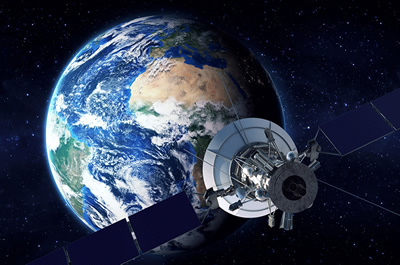A global middle class has emerged, fuelled by rapid growth in emerging economies and other populous and relatively poor countries.
At the same time, wealth is more concentrated with 26 billionaires owning as much as half the global population.
With the right policies, frontier technologies can help make economies and societies more inclusive and address environmental concerns, but they also pose new challenges. They could disrupt labour markets, exacerbate or create new inequalities and raise ethical questions.
To address these challenges, the UN Commission on Science and Technology for Development (CSTD) inter-sessional panel for 2019-2020 is set to continue deliberations on how to make rapid technological change work for all.
The discussions slated for 7 and 8 November at the Palais des Nations in Geneva, will explore how to tackle inequalities linked to digital frontier technologies such as artificial intelligence (AI), big data and robotics.
Experts will examine how rapid technological change could be used to improve inclusiveness in terms of income, gender, various age groups, people with special needs or other groups facing specific challenges.
Addressing inequalities
Governments have an important role to play in addressing inequalities, said Shamika N. Sirimanne, UNCTAD’s director of technology and logistics division and head of the CSTD Secretariat.
“Governments and other stakeholders need to ensure the benefits of frontier technologies reach the largest number of people and, especially the most vulnerable and those further behind,” Ms. Sirimanne said.
Stakeholders also need to ensure rapid technological change results in more and better jobs in developed and developing countries, supporting people affected by technological transition to find new livelihood paths with dignity.
Given the network effects and huge economies of scale that characterize digital technologies, innovation at the frontier needs to be supported by effective competition policies to avoid excessive market power concentration.
Business models that allow inclusive innovation should be scaled up, as the private sector can help lift many people out of poverty, complementing state efforts without requiring additional funding.
Further, the international community should support less technologically advanced countries in their aspirations to catch up with the technologically advanced ones.
Space tech for sustainable development
Interest in using space applications for sustainable development to achieve the Sustainable Development Goals (SDGs) is growing the world over.
Space technologies can help monitor progress towards the goals and support policy decisions by providing real-time information and time-series data from central or remote locations.
They can be used to estimate national and global crop production, monitor infectious disease patterns, detect deforestation and illegal logging.
In addition, they can provide real-time information in disasters and humanitarian crises, estimate national and urban poverty, and help bridge the digital divide through telecommunication satellite services.
Some least developed countries like Bangladesh, Bhutan and the Lao People’s Democratic Republic have recently launched their own satellites.
The CSTD will examine how more countries at various income levels can benefit from space technologies regardless of whether they have their own space agencies and space programmes.
Experts will deliberate on STI policy options for harnessing space technology for sustainable development and how regional and international research collaboration can support such efforts.
During the meeting, a side event on “Space Applications for Sustainable Development: Copernicus and CropWatch in Action” will take place on 7 November from 14:00 to 15:00 in Room XXVI of the Palais des Nations.
The event will present opportunities for developing countries to access data and analytics services from the two programmes in order to advance the SDGs. Leaders from the programmes from the European Union and China will participate in the event.
The CSTD inter-sessional panel will also review progress made in the implementation of and follow-up to the outcomes of the World Summit on the Information Society (WSIS) at the regional and international levels.
Next year’s WSIS Forum, scheduled for 6 – 9 April in Geneva, will be a key milestone in the implementation process.



